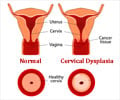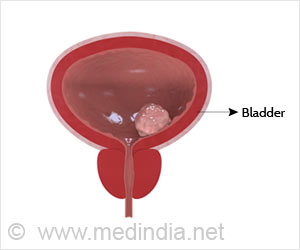A cervical cancer screening expert believes that this disease can be eradicated within the next 50 years by implementing across the world national screening programmes based on detection
A cervical cancer screening expert believes that by implementing national screening programmes worldwide based on detection of the human papilloma virus (HPV), together with vaccination programmes against the virus, cervical cancer can be eradicated within the next 50 years.
Addressing Europe's largest cancer congress ECCO 15 - ESMO 34 [1] in Burlin on Thursday, Professor Jack Cuzick said that while the current HPV vaccines protect against two cancer-causing strains of the HPV virus, soon there would be vaccines available that protect against nine types.He said that combining vaccination with HPV screening, which is much more sensitive than the currently used Pap smear test, could eventually cause the cancer to disappear in the countries that had successfully implemented national programmes.
However, he added, that would require political will and effort at both national and European levels.
"It's important to say up front that the HPV is responsible for all cervix cancer," said Prof Cuzick.
"If you can eradicate the virus, the cancer will not appear. So the current vaccine holds the promise of eradicating about 70-75% of cervical cancers (caused by HPV types 16 and 18), and there appears to be some additional cross protection amongst types that are closely related to 16 or 18, in particular 31, 45 and a little bit of 33. There are new vaccines being planned that will vaccinate against nine types. If they are successful, there should be no need to screen women that have been vaccinated at all. That's the long-term future: vaccination and no screening. After about 50 years, we could see cervical cancer disappearing," he added.
As the current HPV vaccine only protects against two of the cancer-causing types, vaccinated women will still require screening for the rest of their lives.
Advertisement
Prof Cuzick insisted that countries should be switching to the HPV screening test as soon as possible.
Advertisement
He, however, warned that the European Union and national governments should take the initiative in discussions on implementing screening and vaccination programmes, rather than leaving it to pharmaceutical companies to lead the debate.
"The European Commission and Parliament, together with national governments, could be doing more to promote HPV testing. One of the most useful things the EU could do would be to provide a forum for the dissemination of knowledge about the role of HPV both to doctors and to the general public. It could sponsor a major symposium to discuss HPV testing, vaccination and the best strategies for implementing programmes in member countries," he said.
"There's been a lot of concern, particularly with the vaccine, that dissemination of information about HPV has come mainly from the drug companies, and people are, not surprisingly, a little sceptical of pharmaceutical-based education programmes. So if the EU was to take this up without pharmaceutical support, I think it would be very appropriate and it would provide a forum that would be extremely legitimate," he added.
Current HPV tests are more expensive than cytology tests, but Prof Cuzick said that the price would go down with increases in the volume of tests.
Considering that it is more accurate and women could be screened at longer intervals, Prof Cuzick said that switching to HPV testing could save governments money in the long term.
"For younger women we think HPV testing should happen every five years starting at age 25-30; by the time they're 50, if they've been negative, they could probably be screened every eight years. So there's a lot to be gained, both in terms of better protection and less frequent screening, which will save time and money. If women can go less often and get more protection it makes a lot of sense," he said.
Source-ANI
TAN















